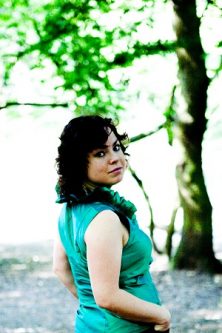 United Kingdom Prokofiev, Schubert, Haydn, Janáček, Rachmaninov: Katya Apekisheva (piano). Wigmore Hall, London 6.6.2019. (CC)
United Kingdom Prokofiev, Schubert, Haydn, Janáček, Rachmaninov: Katya Apekisheva (piano). Wigmore Hall, London 6.6.2019. (CC)

Prokofiev – Visions fugitives, Op.22 (1915-17)
Schubert – Four impromptus, D899 (1827)
Haydn – Keyboard Sonata in E flat, Hob.VI:49 (1789/90)
Janáček – Piano Sonata 1.X.1905, ‘From the Street’ (1905/06)
Rachmaninoff – Études-tableaux, Op. 39 (1916/17): No.6 in A minor; No.9 in D
Katya Apekisheva, co-founder of the London Piano Festival with fellow pianist Charles Owen, offered a spectacularly well-programmed evening in a solo recital that revealed a chameleon-like ability to play absolutely in style for each composer. Technically, the playing was strong; interpretatively, though, it was much more.
Prokofiev’s 20 Visions fugitives, Op. 22, were written between 1915 and 1917. Although often offered in excerpt, together they form their own perfectly judged ecosystem, something Apekishava seemed preternaturally aware of as she threaded her way through Prokofiev’s twenty-mirrored maze. The first piece, in fact, revealed Apekisheva’s strengths perfectly: a simply beautiful sound, perfect projection to the very back of the hall and carefully judged pedalling so that textures remained ever clean. From the modernist second through echt-Prokofiev spiky staccato through piquant yet fragranced harmonies (some parts sounded markedly French-influenced), Apekisheva led us, the listeners, through the score with a firm hand.
Schubert’s famous set of four Impromptus, D899 took us back another 90 years. The first (C minor) and the last (A flat, with a pronounced A flat minor bent) were in effect miniature tone poems for piano, exploratory, brave and unfolding with hypnotic storytelling from the piano. The triplets of the second (E flat) were gloriously even when required, but also varied in touch, everything perfectly balanced, while the long legato lines of the third (G flat major) sang over expertly judged bass trills.
The second half was fascinating. The Haydn Sonata, which most pianists might use to start a programme, here began the second half. Aperkisheva launched straight in to the big-boned opening (the exposition repeat was observed in the first movement). Cheeky staccatos were a clear part of the mood setting here, while the opening bars, when they reappeared, took on a new, playfully lumbering, gait. Ornaments in the recapitulation were brilliantly judged, but it was the pregnant silences of the central Adagio e cantabile that revealed just how much the audience was in Apekisheva’s hands. The profound variations, navigated always with one eye one the larger structural picture, led to a tick-tock finale, playful and yet gracious.
The Janáček Sonata received short shrift in the programme notes (although not as short as one of the Rachmaninoff pieces, which was not mentioned at all). It is, however, a brilliant piece: the composer’s piano writing is utterly unique, as is his soundworld. Apekisheva’s ability to align herself perfectly with each composer’s worldview paid off hugely here, the first movement, ‘Presentiment’, offering a real lament. Its emotional power was viscerally raw, leading to the second panel, simply entitled ‘Death’. Here, Apekisheva found the perfect sense of space; each voicing and chord weighting was obviously the result of much study.
Finally, two Rachmaninoff Études-tableaux, the first heavy, gestural with marked, chattery contrasts, the second full of typical Rachmaninoff bell allusions, an experience that seemed to continually expand out from its starting point.
This recital offered fabulous playing, but more than that, interpretations of the utmost integrity. There was one encore, and one that brought the evening full circle back to Prokofiev: ‘The Farewell’ from Romeo and Juliet.
Colin Clarke
